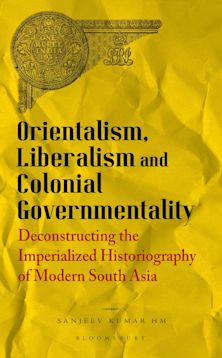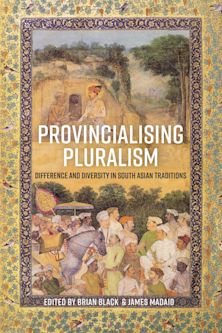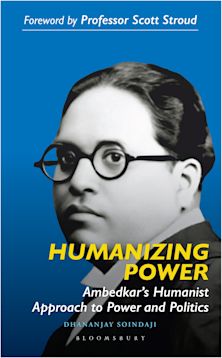- Home
- ACADEMIC
- Politics & International Relations
- Asian Politics
- Social Construction of National Reality
Social Construction of National Reality
Taiwan, Tibet and Hong Kong
Social Construction of National Reality
Taiwan, Tibet and Hong Kong
This product is usually dispatched within 1 week
- Delivery and returns info
-
Free CA delivery on orders $40 or over
You must sign in to add this item to your wishlist. Please sign in or create an account
Description
Social Construction of National Reality:Taiwan, Tibet and Hong Kong applies Peter Berger’s theory of social construction of reality to explain the origins of national identity and the process of nation building. Professor Fu-Lai Tony Yu and Diana S. Kwan examine how everyday life experiences, as a result of socialization, germinate ingroup and outgroup which differentiate nationals and foreigners. Using this theory to advance an understanding of conflicts between national groups, Yu and Kwan analyze how national consciousnesses have precipitated the Taiwan Strait Crisis, upheavals in Tibet, and Hong Kong’s Umbrella Movement.
Table of Contents
Chapter 2: Social Construction of National Reality: Towards a Theory of National Consciousness and Identity
Chapter 3: Historical Origins of China’s National Identity: Grand Unification Doctrine, Great Han Mentality, Patriotism and Nationalism
Chapter 4: The Taiwan Strait Conflict: Taiwanese Consciousness versus Chinese Consciousness
Chapter 5: Tension in Tibet: Tibetan Buddhism against Chinese Cultural Assimilation
Chapter 6: Explaining the Rise of Hong Kong Consciousness: Localization against Mainlandization
Chapter 7: A Comparative Analysis on the Taiwan Strait Conflict, Tibet’s Tension and Hong Kong’s Localization Movement
Product details
| Published | Oct 14 2020 |
|---|---|
| Format | Hardback |
| Edition | 1st |
| Extent | 178 |
| ISBN | 9781498592420 |
| Imprint | Lexington Books |
| Illustrations | 4 tables; 3 textboxes; |
| Dimensions | 229 x 160 mm |
| Publisher | Bloomsbury Publishing |
About the contributors
Reviews
-
Social Construction of National Reality: Taiwan, Tibet and Hong Kong is a highly interesting book, using the phenomenological sociology of Berger and Luckmann—as well as Weber and Schutz—to shed light on the struggles over identity and belonging being waged between China and Taiwan/Tibet/Hong Kong. If both mainland Chinese unificationists and Taiwanese/Tibetan/Hongkonger separatists were to read this clearly-written and clearly-argued book, they might come to a deeper understanding of one another's seemingly intractable positions and why those positions are held—an understanding that in today's tense times is all too lacking.
Gordon Mathews, The Chinese University of Hong Kong
-
The rise and re-emergence of nationalistic movements is a most relevant fact of present days. Understanding nationalism is of particular importance in order to face it in an objective manner and provide a proper and constructive answer to the challenges it poses. This book offers a useful characterization of nationalism from a theoretical point of view and applies it to the cases of China versus Taiwan, Tibet, and Hong Kong. Overall, the book provides a valuable contribution to the analysis of one of the most hotly debated issues in current policy discussions.
Oscar Bajo-Rubio, University of Castilla-La Mancha
-
Understanding the underlying causes of political and social conflicts is utterly important to improving global well-being. This book provides brilliant insights into the nature of ideological differences in the region. The intersubjectivist approach in the book is inspiring and compelling. Readers in international political economy would be greatly benefited from this volume.
Yu-Chen Kuo, Feng Chia University
-
Although the greater generalization of the complex political and social situation may not be feasible given the historical complexities of the region’s the book addressed, understanding national reality through social construction theory enriched the book. It is an important contribution to the field of national identity studies and will be of interest to students and scholars of sociology, political science, anthropology, and international relations, as well as policymakers and anyone interested in understanding the ways in which national identities, nationalism, and state-building shaped and contested.
Social Identities

ONLINE RESOURCES
Bloomsbury Collections
This book is available on Bloomsbury Collections where your library has access.


































